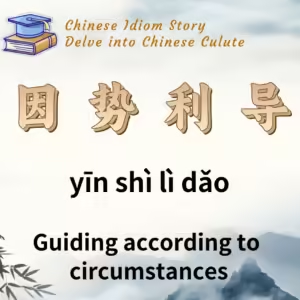
Chinese Idiom: 读书破万卷,下笔如有神 (Du Shu Po Wan Juan, Xia Bi Ru You Shen)
English Translation: Having read ten thousand volumes, writing feels divinely inspired
pīn yīn: dú shū pò wàn juǎn, xià bǐ rú yǒu shén
Idiom Meaning: This idiom describes the idea that extensive reading leads to profound knowledge, which in turn enhances one’s writing ability, making it seem effortless or inspired.
Historical Source: From Du Fu’s poem 奉赠韦左丞丈二十二韵 (Gift to Wei Zuo Chang).
Idiom Story:
Du Fu, one of the greatest poets in Chinese literature, was the grandson of the famous poet Du Shenyan from the early Tang dynasty. He received a good education and was able to write poetry by the age of seven. By fourteen, he had already gained local fame as a young writer. Du Fu had a deep passion for reading and traveled extensively in the Jiangnan and Shandong regions, where he absorbed a wealth of knowledge.
However, in the year he turned thirty-five (747 AD), Du Fu arrived in Chang’an to take the imperial examination, only to be thwarted by the corrupt chancellor Li Linfu, resulting in his failure to be selected. Frustrated and disheartened by his situation, Du Fu composed a poem in 748 AD dedicated to Wei Ji, a high-ranking official. This poem, 奉赠韦左丞丈二十二韵, expressed his aspirations and the frustrations of his current plight.
The first ten lines of this poem convey his sentiments:
纨绔不饿死,儒冠多误身。
丈人试静听,贱子请具陈。
甫昔少年日,早充观国宾。
读书破万卷,下笔如有神。
赋料扬雄敌,诗看子建亲。
The essence of these lines reveals a societal irony: wealthy, idle youths (纨绔) often thrive without effort, while diligent scholars (儒冠) struggle for opportunities. Du Fu reflects on his youthful aspirations to be a candidate in the capital and emphasizes his extensive reading—having read countless volumes—which makes his writing feel divinely inspired. He claims that his literary skills rival those of renowned figures like the Han dynasty’s Yang Xiong and the Three Kingdoms poet Cao Zhi.
Over time, the phrase “读书破万卷,下笔如有神” became an idiom, symbolizing that extensive reading and knowledge are crucial for exceptional writing. This idiom continues to inspire students and writers, reminding them of the value of learning and the power of words.






